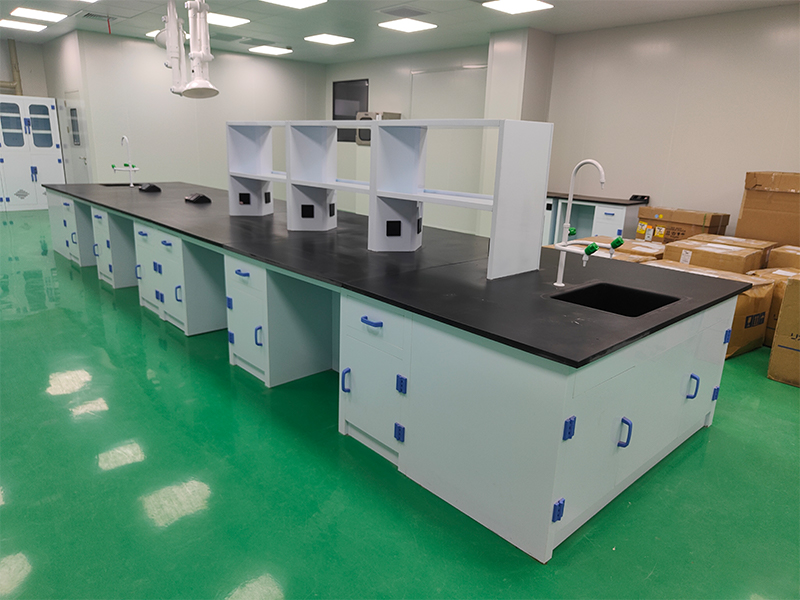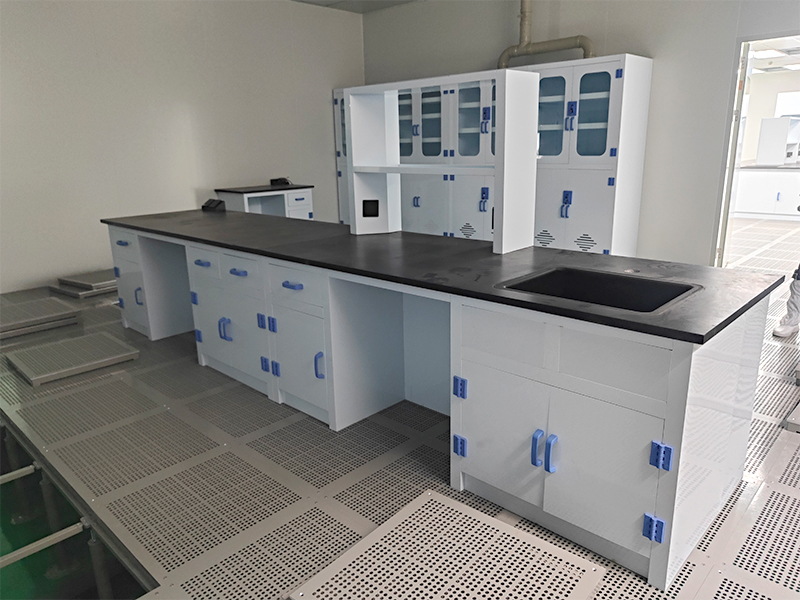Picking the right lab bench material isn’t just about looks—it’s about lab safety, durability, and making sure your workspace holds up year after year. Labs deal with all sorts of challenges: harsh chemicals, high heat, spills, and heavy equipment. When you understand what each material brings to the table, you can invest in benches that stay dependable and low-maintenance for the long haul.
Common Lab Bench Materials and Where They Shine
Labs don’t have a one-size-fits-all solution. The most common materials you’ll see are full steel, stainless steel, epoxy resin, phenolic resin, and high-pressure laminates. Each one serves a purpose, depending on the type of work you do.

Full Steel Benches
If you need brute strength, go with full steel. These benches take a beating—impacts, spills, constant cleaning—and keep going. Powder-coated finishes add another layer of protection, so rust and corrosion don’t stand a chance. They’re a staple in chemical, industrial, and analytical labs where durability is non-negotiable.
Stainless Steel Benches
Stainless steel is the go-to for biological and medical labs. It’s smooth, non-porous, and a breeze to disinfect, so bacteria can’t hide out. It shrugs off corrosion, steam, and humidity, which makes it perfect for cleanrooms, food testing, and anywhere hygiene comes first.
Epoxy Resin Countertops
Epoxy resin is the workhorse for wet chemistry. It laughs in the face of strong acids, bases, and solvents, and it handles moderate heat with no fuss. Thanks to its non-porous surface, spills stay on top—you won’t find liquids seeping in and causing trouble later.

Phenolic Resin Worktops
Want something tough but lighter? Phenolic resin is a favorite in modern labs, especially for educational and research spaces that need benches to move or reconfigure. It resists chemicals, moisture, and knocks, all while being easier to handle than heavier materials.
High-Pressure Laminate and Composite Surfaces
For classrooms or labs that don’t deal with harsh chemicals every day, high-pressure laminates and composite materials are a smart, budget-friendly pick. They offer solid stability and decent chemical resistance for everyday experiments and instruction.
What to Think About Before You Buy
Don’t just pick a material because it sounds good—think about your real needs. How often will you clean? Are you dealing with heavy chemicals or heat? Do you need benches that can take a lot of weight? The right choice boosts safety, keeps workflows smooth, and saves you money by avoiding constant repairs or replacements.

Matching Materials to Lab Types
- Chemical labs count on epoxy resin and full steel for toughness.
- Biological labs stick to stainless steel for easy cleaning and hygiene.
- Educational labs go for phenolic resin or laminate—light, flexible, and affordable.
- Pharmaceutical R&D teams blend corrosion resistance with strong, load-bearing surfaces.
In the end, picking long-lasting materials keeps your lab furniture in top shape and your team working safely every day.
Huajusheng Lab Equipment specializes in full steel lab benches, stainless steel lab furniture, and complete lab construction—so when you’re ready to upgrade, you know where to look.


